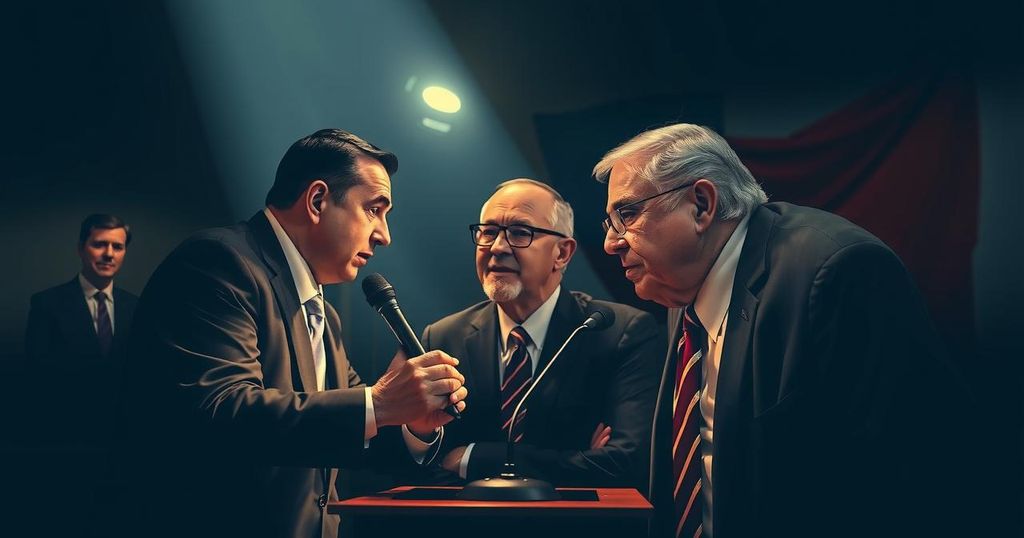American officials are doubtful of achieving a ceasefire in Gaza before the U.S. presidential election, with Israeli Prime Minister Netanyahu waiting for the election results. Optimism is higher regarding a potential ceasefire between Israel and Hezbollah in Lebanon. Key discussions are underway, but obstacles remain, especially with Hamas’s insistence on a permanent ceasefire. The ongoing conflicts have also manifested in protests within the U.S., reflecting the contentious nature of Middle Eastern policy in electoral politics.
American officials exhibit skepticism regarding the potential for a significant diplomatic breakthrough in the Middle East before the impending U.S. presidential election on Tuesday. Israeli Prime Minister Benjamin Netanyahu appears to be awaiting the outcome of the electoral process before making any decisive moves regarding the conflict in Gaza. In contrast, there are growing hopes for a resolution to the violence in Lebanon, with Lebanese Prime Minister Najib Mikati expressing optimism that a ceasefire agreement between Israel and Hezbollah may be imminent. During recent discussions led by CIA Director Bill Burns in Cairo, talks have focused on both the situation in Gaza and the violence along the Israel-Lebanon border. With U.S. envoys in the region seeking to lay the groundwork for reduced hostilities, Netanyahu emphasized Israel’s need to maintain the ability to enforce any potential agreements to safeguard its security. While there is cautious optimism about discussions in Lebanon, expectations for immediate progress in Gaza remain tempered. The geopolitical landscape continues to weigh heavily on U.S. electoral politics, with instances of protest surrounding diplomatic speeches indicating a charged atmosphere regarding the Israeli-Palestinian conflict. Efforts to forge a ceasefire in Gaza are further complicated by ongoing negotiations, which include proposals for a temporary truce in exchange for hostages. However, Hamas’s reluctance to engage with any plan lacking a commitment to a permanent ceasefire adds an additional layer of complexity. Meanwhile, in Lebanon, the U.S. aims to broker a diplomatic solution to halt clashes with Hezbollah while both Israeli and American officials have been reticent about the details of circulated ceasefire drafts. As the election approaches, the unresolved conflicts in Gaza and Lebanon pose considerable challenges, highlighting the intertwined nature of U.S. domestic political dynamics and foreign policy in the Middle East.
In the context of the ongoing conflicts in Gaza and Lebanon, the United States has been actively pursuing diplomatic avenues to facilitate ceasefire agreements in anticipation of the upcoming presidential election. The situation is compounded by Israeli Prime Minister Benjamin Netanyahu’s perceived strategy of waiting for the election results before committing to any significant actions. U.S. officials, particularly under the Biden administration, recognize that the outcome of the elections is likely influencing the dynamics in the region. Concurrently, the administration’s approach aims to balance immediate conflict resolution efforts while navigating complex regional relationships, especially with principal players such as Hamas and Hezbollah. The hope for a breakthrough in diplomacy, particularly in Lebanon, stands against a backdrop of continued violence and humanitarian concerns in Gaza.
In conclusion, the prospects for a ceasefire in Gaza before the U.S. presidential election are grim, with American officials expressing doubts about achieving significant diplomatic progress in the coming days. Meanwhile, emerging dialogues in Lebanon provide a glimmer of hope for a potential ceasefire there. The intertwined nature of U.S. domestic politics and Middle Eastern diplomacy underscores the complexities facing American officials as they strive for conflict resolution in a turbulent region amid an uncertain electoral outcome.
Original Source: www.cnn.com







